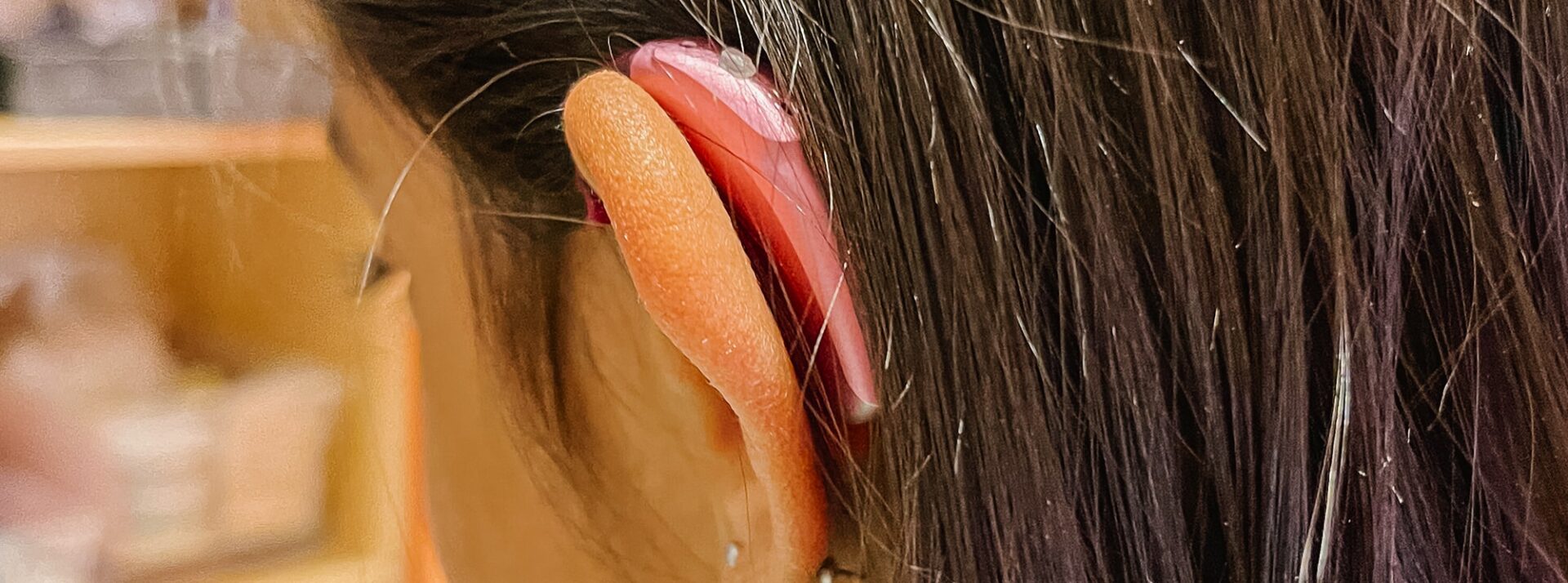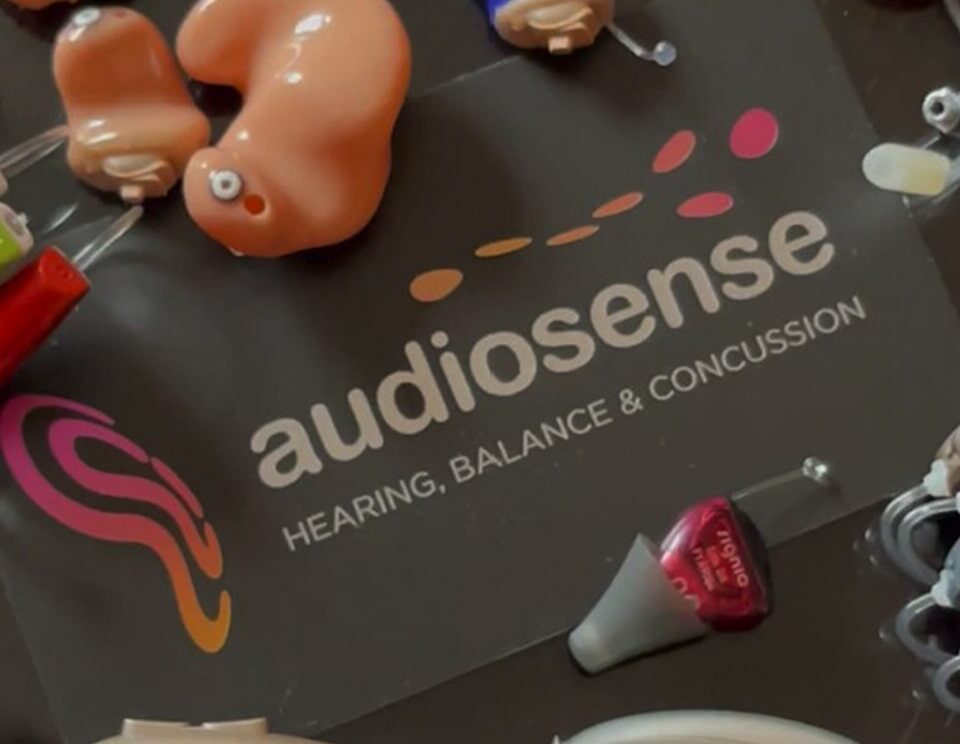With such a wide variety of models, brands, features, and designs, the costs of hearing aids might vary significantly. A popular misconception is that a smaller device has improved functionality and a higher cost. However, the reality is that, with smaller hearing aids, you might need to compromise on battery life, power, rechargeability, wireless connectivity, and other extra hearing aid functionalities. Furthermore, the size or style of the hearing aid is not the biggest influence on the cost. The range in prices of hearing aids depends primarily on the level of technology built into the hearing aid.
Most hearing aids are priced based on the hearing aid technology, as well as the cost of the clinical services. That means when you buy hearing aids, you’re also typically buying your clinical services for the duration of the hearing aids’ warranty, which typically is 2-3 years.
Clinical services are usually included in this price, since hearing aids are both a medical device and also a piece of technology. This means they might need reprogramming, ongoing maintenance to ensure they are functioning appropriately, and routine cleanings. It is important to annually monitor your hearing, and adjust the hearing aids if there are any changes. Ongoing counselling and care is important, and at AudioSense Hearing Clinic you will always have us to help you through every step of the process..
Considering features, size, cosmetic preferences and occupational requirements Canadian hearing aid purchases fall under four primary price bands. These include:
- Essential. Generally, essential-level hearing aids often work better in quiet environments since they’re quite sparse on features. They’re not best suited for users who spend considerable time in outdoor or noisy environments. They’re mostly priced at around $1,000 – $1,500 (including clinical services).
- Basic. Basic hearing aids are a step higher than essential level devices and may offer a few extra features. However, they remain an excellent choice for relatively quiet environments. Costs vary from $1,500 – $2,000 (including clinical services).
- Mid-Range. These hearing aids are best suited for improved hearing in quiet or moderately noisy environments. In general, they provide lower listening effort and enhanced sound quality than the basic or essential levels of technology. Although they’re generally suitable for most environments, they might sometimes need some manual changes. Typically, devices in this range might cost $2,000 – 2,500 (including clinical services).
- Premium. With high-quality features and technology, these devices deliver excellent sound quality and require the least listening effort. Since they’re the most automatic hearing aids available, they might need fewer manual changes. They also consist of features that may assist with more complex sounds, such as music and wind. Premium hearing aids are ideal for both noisy and quiet environments and are best suited for individuals who are looking for the most effortless, automatic, and natural-sounding hearing. Premium hearing aids can cost between $2,500 – 3,000 (including clinical services).
No matter the level of technology that you end up choosing, you’ll hear better. The primary difference when it comes to the technology levels revolves around the quality of the sound and automatic features, such as noise reduction, speech enhancement, wind noise reduction and music optimization. Features that don’t typically influence the cost include rechargeability and Bluetooth connectivity, so even basic technology will include these features.
Are Hearing Aids Covered by OHIP?
No, OHIP typically does not cover the cost of hearing aids. Ontario residents are responsible for purchasing them out of pocket or through private insurance. However, the Ministry of Health offers some funding towards the cost of hearing aids under the Assistive Devices Program (ADP) for Ontario residents. Children and adults with OHIP Health Cards may receive 75% coverage of the price of each hearing aid, up to a maximum grant of $500 per aid.
Speak with your Audiologist to determine whether you are eligible for this grant – click here to book an appointment.
Based on the brand, clinic, and time of the year, you might also enjoy discounts, special deals, and easy financing options.
When Should You Consider Hearing Aids?
Based on Statistics Canada, around 4 million people live with hearing disabilities, and a majority who discover their hearing impairment wait an average of 7 years before moving forward with hearing aids. The prolonged wait might lead your hearing loss to progress to a degree where the brain actually ‘forgets’ how to perceive sounds correctly, making it more difficult for you to adjust to hearing through a hearing aid. Choosing hearing aids sooner might reduce this risk.
Some of the symptoms that indicate a hearing loss include:
- You realize the voices on your phone calls are low or unclear.
- You find yourself constantly requesting people to repeat themselves.
- You seem to have challenges in understanding speech in a noisy environment.
- Your friends or family complain that you listen to music or watch TV at a very high volume.
- You find that you are trying to lip-read people because you can’t hear what they’re saying.
- You find it difficult to hear when someone is wearing a mask.
- You think others are speaking too softly or mumbling and, therefore, strain to understand conversations in a social setting or at work.
Sometimes, ear infections, excessive wax accumulation, or exposure to loud sounds, like concerts or gunshots, can result in temporary hearing loss or tinnitus. That said, if you recognize the signs mentioned above, you might be struggling with hearing difficulties that need further rehabilitation.
Does this sound like you or somebody you know? If so, schedule a hearing test with one of our Audiologists, or consult with your healthcare provider. Depending on the results, the hearing health expert will advise if hearing aids are the appropriate solution, or whether there’s a medical condition that needs to be attended to.
Schedule a hearing test or consult with an audiologist at AudioSense. To book an appointment, call 419-901-4770.
About the Author
Salima Jiwani is the Founder/Director and Lead Audiologist at AudioSense Hearing, Balance & Concussion, an audiology clinic in Yorkville, Toronto. Salima has a keen clinical and research interest in disorders of the external, middle and inner ear, including hearing loss, auditory processing difficulties, tinnitus, sound sensitivities and post-concussion auditory deficits. Salima is passionate about understanding how the brain responds to sound after injury and in post-surgical management of cochlear implants. Salima works with children and adults of all ages at AudioSense, and provides her patients with industry-leading audiological care by leveraging her clinical, research and industry experience. She firmly believes in a holistic cross-collaborative team approach to audiological care and is always looking for outside-the-box evidence-based innovative ways to offer care to her patients. Outside of work, Salima continues to be engaged in advocacy initiatives to elevate the profession of audiology, give audiologists a voice and promote optimal audiological care for her patients.






